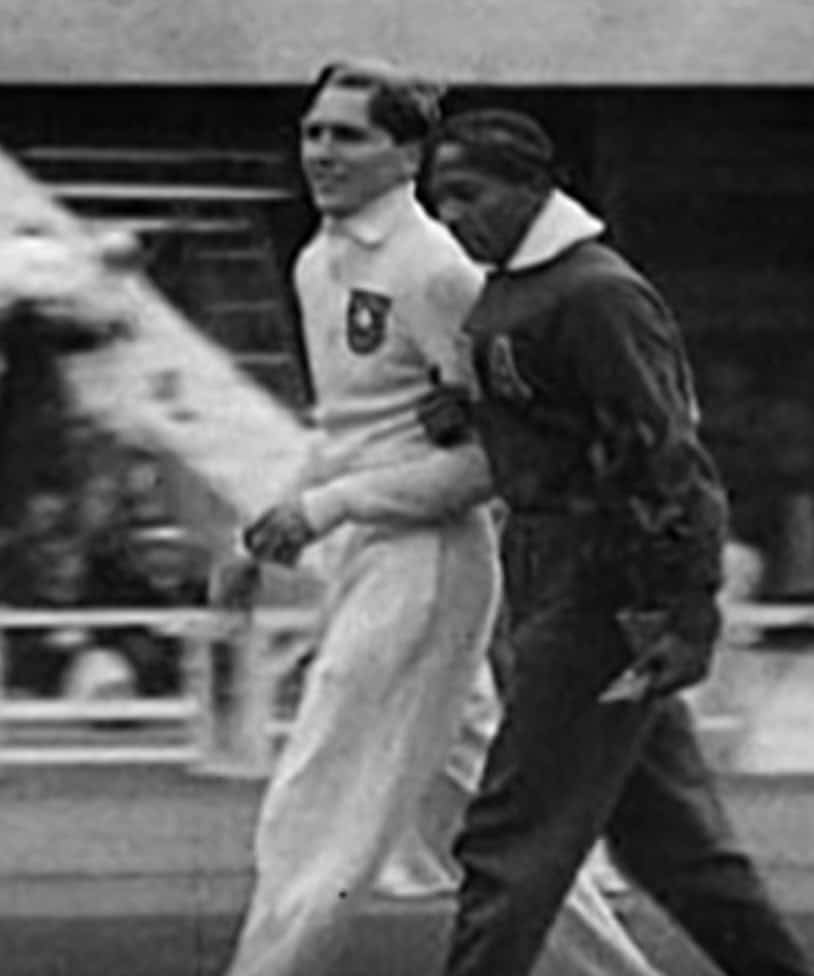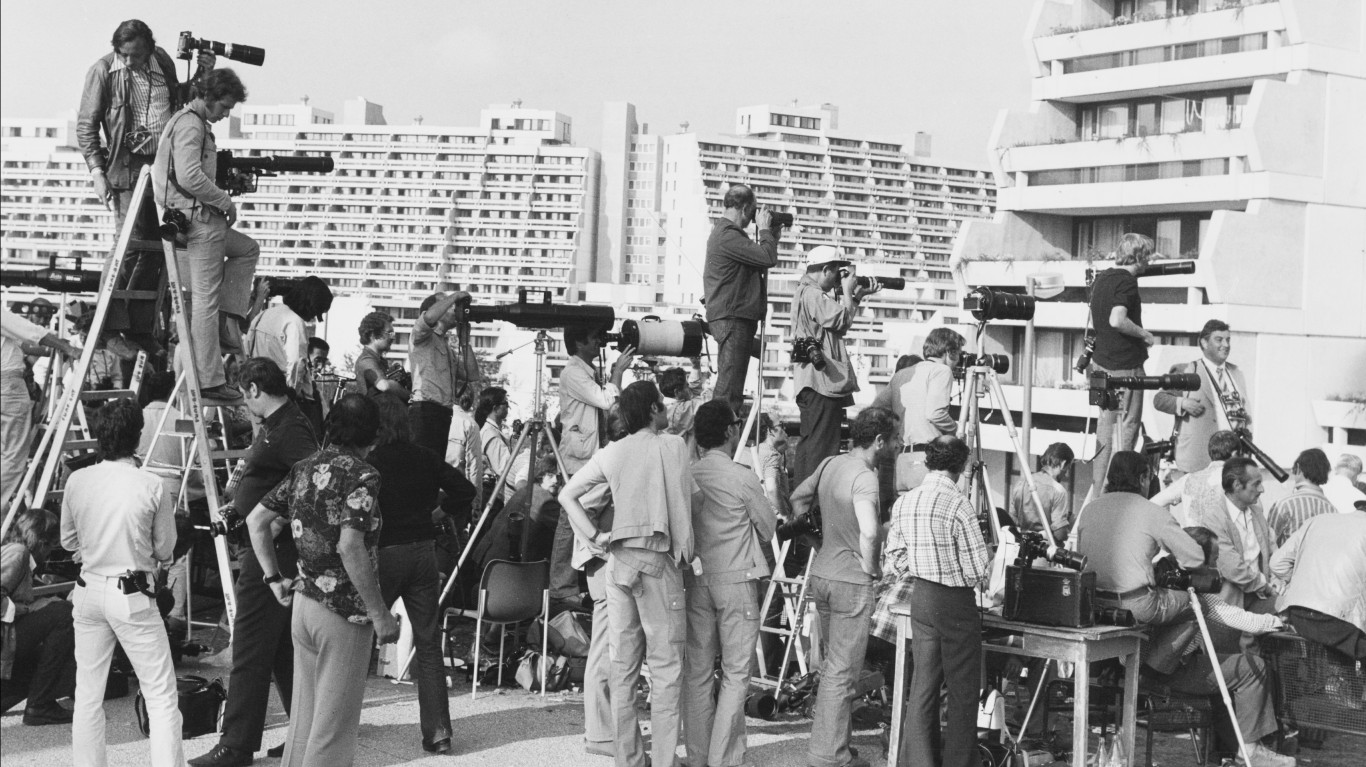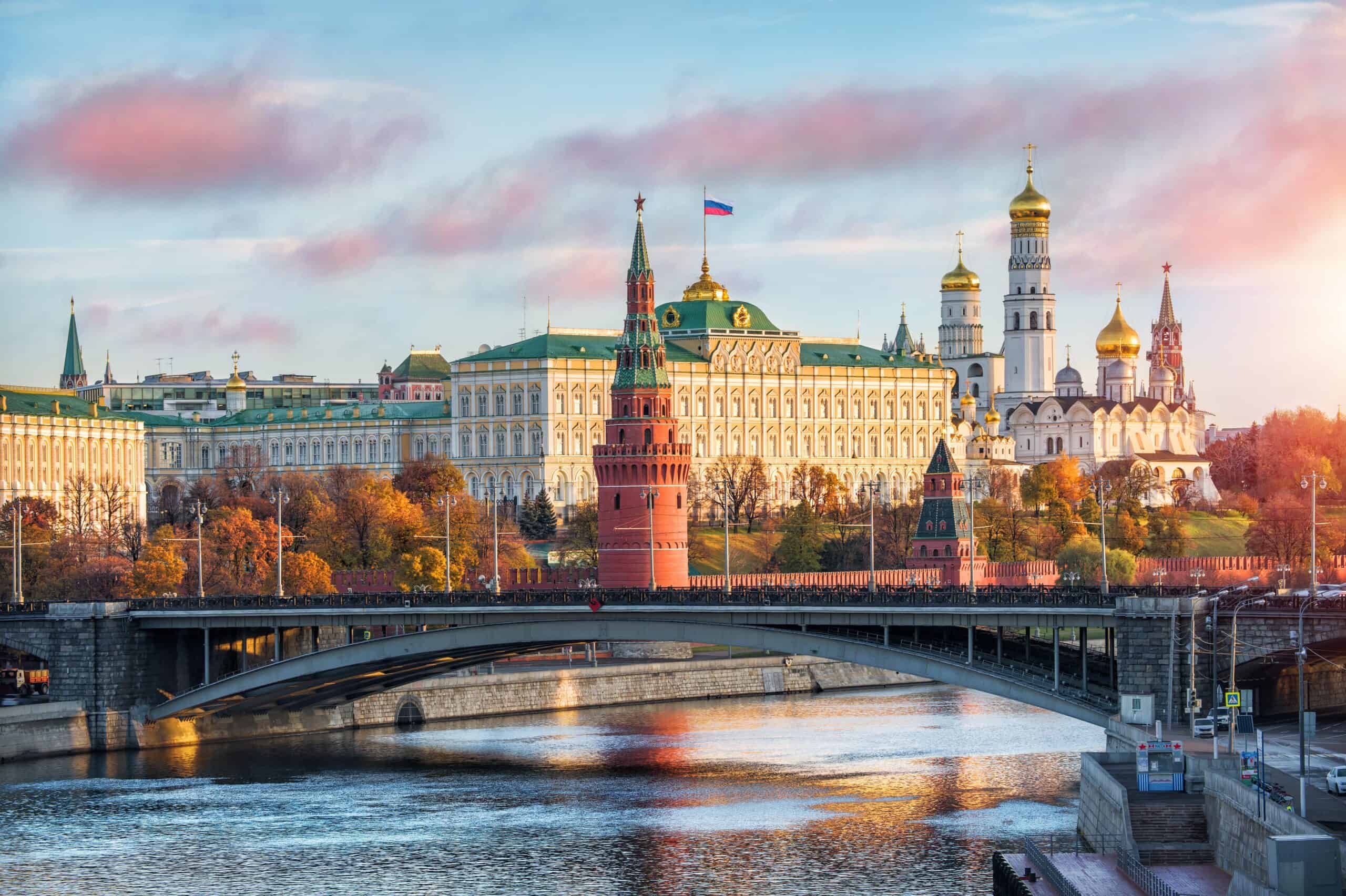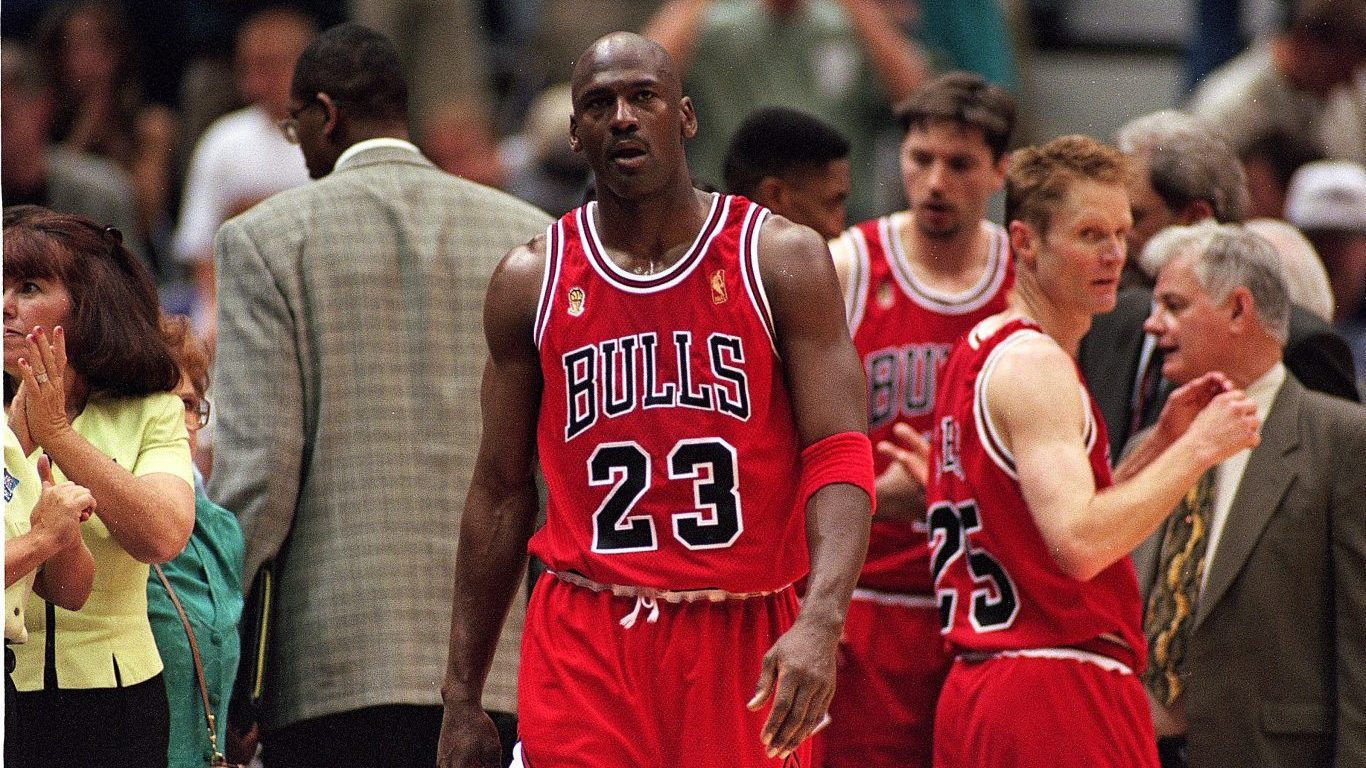
Cities around the world compete to host the quadrennial Olympic games. Even though it’s a huge expense and planning nightmare, it is also a chance to upgrade a city’s infrastructure, draw millions of tourists, and attract international investment. The reverse is also true, though. Security breaches, international controversies, cheating scandals, or the financial strain of putting on the event can be toxic for tourists and investors and can leave the host city deeply in debt.
We’ve put together a list of some of the most disastrous Olympics for their host country. It’s news you can use, especially as the 2028 Games will be in Los Angeles. Maybe you want to invest in companies doing construction, hosting tourists, or providing additional security. Or maybe you want to steer far clear in case L.A. turns out to be the next Olympic catastrophe.
24/7 Wall St. Insights
- Some Olympics were truly catastrophic for the host country, such as when security was not enough to prevent tragic terrorist acts.
- In other cases, Olympic Games created lasting financial hardship or were overshadowed by international controversies and scandals.
- Also: 2 Dividend Legends To Hold Forever
Athens, Greece (1896)

The very first modern Olympic games were held in Athens to honor the event’s cultural origins there. Unfortunately, the event was marred by an egregious cheating scandal. Spyridon Belokas won the bronze for the marathon. He was later disqualified when it turned out he had used a carriage to add some additional horsepower to part of his run! It was all especially embarrassing for the host city, given the athlete was Greek and competing in an event proudly celebrated in the ancient history of Athens.
Paris, France (1900)

At the Paris Games of 1900, swimmers were expected to compete in the Seine River, which, as the sewage outflow for the whole city, was extremely polluted. Some of the athletic venues were too small for the events. In the discus throw, three of Rudolf Bauer’s attempts flew dangerously into the crowd. The whole event was considered a fiasco that put the city’s poor planning and organization on display for the disdain of the world.
Incidentally, Paris banned swimming in the Seine for more than a century after this but held men’s and women’s triathlons in the river again when the Games returned to Paris in 2024. The city completed a massive cleanup effort and managed to meet IOC’s safety standards for the event. Nevertheless, three German swimmers became ill after the event and blamed it on the water quality.
Berlin, Germany (1936)

Germany and its allies were not invited to the first few Olympic Games after World War I as part of their general international ostracism after losing the war. It was highly significant for the German people, then, that the 1936 games were held in Berlin. This would be a sign that the country was finally rejoining the community of nations as a great power. Adolf Hitler was in power by this time, hoping to use the Olympics to score propaganda points and showcase the supposed racial superiority of the Aryan people.
The Nazi narrative was demolished in a particularly humiliating fashion by African-American runner Jesse Owens. Owens won 4 gold medals, beating out athletes from Germany and other European countries. Further rubbing salt in the wound, German long jumper Luz Long, who looked the part of the “perfect” Aryan German, befriended Owens and walked a victory lap with him around the stadium in full view of Hitler and his henchmen. The poetic irony of the situation demolished German pretensions of superiority.
Munich, West Germany (1972)

The most infamous Olympic catastrophe happened at the 1972 Munich Olympics. Aided by German neo-Nazis, 8 members of a Palestinian terrorist group called Black September infiltrated the Olympic Village. They killed two Israeli team members and took 9 others hostage. The surviving hostages were all killed during a failed rescue attempt by West German police, as were 5 terrorists and one police officer. A month later Black September hijacked a German commercial airliner and exchanged the passengers and crew for the surviving Munich attackers. The killers found sanctuary in Libya, where they were welcomed as heroes.
The entire event cast doubt on Germany’s security apparatus and gave rise to conspiracy theories of special deals the Germans may have struck with terrorist organizations. Determined to see justice done and deter future such attacks, Israel dispatched Mossad agents around the world to assassinate about 20 individuals associated with the Munich massacre, including two of the original surviving terrorists.
Montreal, Canada (1976)

The Montreal Olympic Games were marred by international controversy and financial disaster. 22 African countries boycotted the event because they wanted New Zealand banned. The New Zealand national rugby team had toured South Africa that year, despite the fact that most countries were boycotting any interactions with that country over its racial apartheid policies. In a second controversy, Canada and the International Olympic Committee differed over whether Taiwan should be allowed to compete, as Canada did not recognize Taiwan as a country. Ultimately, neither China nor Taiwan attended.
Only 92 countries participated, down from 121 at the previous Olympics. This, together with cost overruns and construction delays, turned the event into a financial disaster of the first magnitude. The main Olympic stadium was supposed to cost $250 million but ended up costing $1.4 billion—a crushing debt that took the province of Quebec 30 years to pay off.
Moscow, Soviet Union (1980)

During the Cold War, the Olympics were an arena of superpower competition. The medal count between the United States and the Soviet Union was always a matter of intense media attention. Each side wanted to showcase the superiority of their radically different social systems and the athletes they produced.



The 1980 Olympics were scheduled to be held in Moscow, which would have given the USSR maximum propaganda benefit. However, in response to the Soviet invasion of Afghanistan in 1979, 66 countries boycotted the event, including the United States. A 1989 report on the Moscow Olympics revealed that most Russian athletes at the event used performance-enhancing drugs. As a result, the International Olympic Committee added additional drug testing techniques to their protocols. The entire event was a lost chance to make the Soviet Union look good in the eyes of the world.
Athens, Greece (2004)

The Games returned to Athens in 2004, but this turned out to be a financial catastrophe for the city and the whole country. Cost overruns blew out the budget until the hosts had gone massively into debt in a $15 billion spending spree. That’s about twice what the country spends on its entire military budget each year. It’s estimated that the Olympics have cost every Greek household over $56,000 and were a significant contributor to the country’s financial collapse in the first two decades of the 21st century.
Rio de Janeiro, Brazil (2016)

Brazil was the first South American country to host an Olympics, part of a trend of developing nations wanting to use the event to showcase their progress toward modernity. The 2016 games in Rio cost over $20 billion, $13 billion of which had to be absorbed by the city itself. The event stressed the city budget so much it could not pay its employees and the federal government had to step in with $900 million to help cover the cost of policing the Olympics. Most of the venues built for the Olympics, which were intended to help revitalize different parts of the city, are now abandoned.
Would You Like the Olympics to Come to Your City?

No doubt about it, the Olympic Games are an engrossing spectacle every four years. And if you’re fortunate enough to attend any of the events in person, it’s an experience you’ll remember for a lifetime. Unfortunately, for many host cities, it’s also an expense you’ll remember for a lifetime. Since the 1970s, most Olympics have cost far more than their initial budgets and have not delivered on the anticipated economic benefits to their hosts. And in some cases, they’ve tarred the name of a city forever with a tragic event, unsavory scandals, or a perception of incompetent planning. It’s high drama for sure. But maybe the kind of drama you’d rather see on t.v. than participate in.
It’s Your Money, Your Future—Own It (sponsor)
Are you ahead, or behind on retirement? For families with more than $500,000 saved for retirement, finding a financial advisor who puts your interest first can be the difference, and today it’s easier than ever. SmartAsset’s free tool matches you with up to three fiduciary financial advisors who serve your area in minutes. Each advisor has been carefully vetted and must act in your best interests. Start your search now.
If you’ve saved and built a substantial nest egg for you and your family, don’t delay; get started right here and help your retirement dreams become a retirement reality.
Thank you for reading! Have some feedback for us?
Contact the 24/7 Wall St. editorial team.


